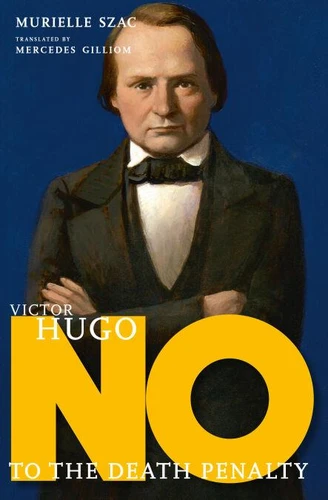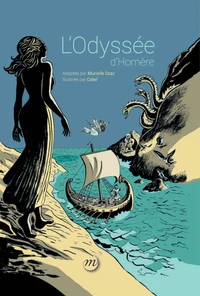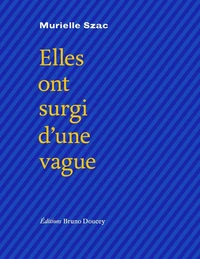Victor Hugo
Par :Formats :
Actuellement indisponible
Cet article est actuellement indisponible, il ne peut pas être commandé sur notre site pour le moment. Nous vous invitons à vous inscrire à l'alerte disponibilité, vous recevrez un e-mail dès que cet ouvrage sera à nouveau disponible.
Disponible dans votre compte client Decitre ou Furet du Nord dès validation de votre commande. Le format ePub protégé est :
- Compatible avec une lecture sur My Vivlio (smartphone, tablette, ordinateur)
- Compatible avec une lecture sur liseuses Vivlio
- Pour les liseuses autres que Vivlio, vous devez utiliser le logiciel Adobe Digital Edition. Non compatible avec la lecture sur les liseuses Kindle, Remarkable et Sony
- Non compatible avec un achat hors France métropolitaine
 , qui est-ce ?
, qui est-ce ?Notre partenaire de plateforme de lecture numérique où vous retrouverez l'ensemble de vos ebooks gratuitement
Pour en savoir plus sur nos ebooks, consultez notre aide en ligne ici
- Nombre de pages96
- FormatePub
- ISBN978-1-64421-347-6
- EAN9781644213476
- Date de parution07/04/2026
- Protection num.Adobe DRM
- Infos supplémentairesepub
- ÉditeurTriangle Square
Résumé
The first young adult book about the great writer and social justice activist plunges us into the heart of Victor Hugo's fierce fight against the death penalty. A new addition to the "They Said No" series. The guillotine. When Victor Hugo was a child in early 1800s France, it was common to walk down the street and see a petty thief or vagrant beheaded at the guillotine. It was a brutal punishment and also a public spectacle.
Hugo was sickened and haunted by these public executions. For him, no man has the right or the power to end the life of another, whatever the crime committed. Hugo was a poet and novelist, author of Les Miserables and The Hunchback of Notre Dame among many others. But equally important to him was his work that protected life, like his book The Last Day of a Condemned Man, which allowed readers to understand what it might feel like to contemplate one's impending death.
He also led a fight to save an assassin named Tapner: he had "declared war on the guillotine."Many activists have taken up the fight to end the death penalty. And much progress has been made around the world. Yet many countries--China, Iran, Egypt, the United States and many others--despite calls from those around the world who continue to say no, still allow the death penalty as a form of state-sanctioned punishment.
Hugo was sickened and haunted by these public executions. For him, no man has the right or the power to end the life of another, whatever the crime committed. Hugo was a poet and novelist, author of Les Miserables and The Hunchback of Notre Dame among many others. But equally important to him was his work that protected life, like his book The Last Day of a Condemned Man, which allowed readers to understand what it might feel like to contemplate one's impending death.
He also led a fight to save an assassin named Tapner: he had "declared war on the guillotine."Many activists have taken up the fight to end the death penalty. And much progress has been made around the world. Yet many countries--China, Iran, Egypt, the United States and many others--despite calls from those around the world who continue to say no, still allow the death penalty as a form of state-sanctioned punishment.
The first young adult book about the great writer and social justice activist plunges us into the heart of Victor Hugo's fierce fight against the death penalty. A new addition to the "They Said No" series. The guillotine. When Victor Hugo was a child in early 1800s France, it was common to walk down the street and see a petty thief or vagrant beheaded at the guillotine. It was a brutal punishment and also a public spectacle.
Hugo was sickened and haunted by these public executions. For him, no man has the right or the power to end the life of another, whatever the crime committed. Hugo was a poet and novelist, author of Les Miserables and The Hunchback of Notre Dame among many others. But equally important to him was his work that protected life, like his book The Last Day of a Condemned Man, which allowed readers to understand what it might feel like to contemplate one's impending death.
He also led a fight to save an assassin named Tapner: he had "declared war on the guillotine."Many activists have taken up the fight to end the death penalty. And much progress has been made around the world. Yet many countries--China, Iran, Egypt, the United States and many others--despite calls from those around the world who continue to say no, still allow the death penalty as a form of state-sanctioned punishment.
Hugo was sickened and haunted by these public executions. For him, no man has the right or the power to end the life of another, whatever the crime committed. Hugo was a poet and novelist, author of Les Miserables and The Hunchback of Notre Dame among many others. But equally important to him was his work that protected life, like his book The Last Day of a Condemned Man, which allowed readers to understand what it might feel like to contemplate one's impending death.
He also led a fight to save an assassin named Tapner: he had "declared war on the guillotine."Many activists have taken up the fight to end the death penalty. And much progress has been made around the world. Yet many countries--China, Iran, Egypt, the United States and many others--despite calls from those around the world who continue to say no, still allow the death penalty as a form of state-sanctioned punishment.

















